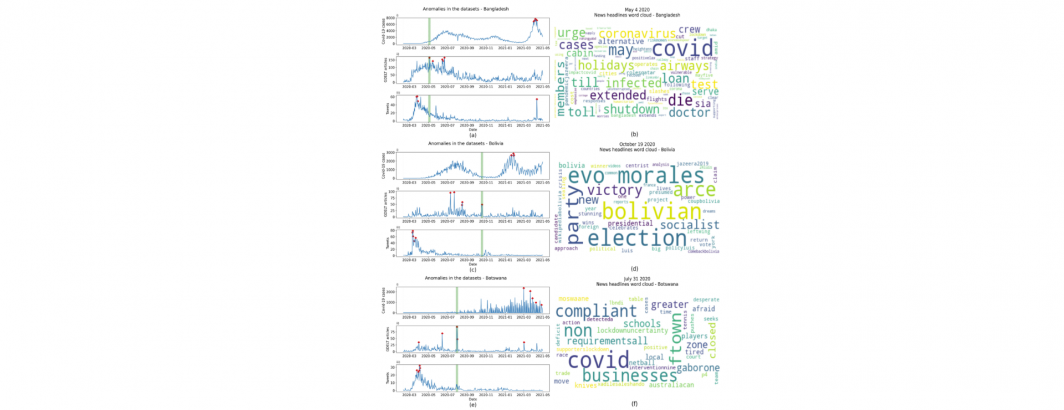
Social media platforms are valuable data sources in the study of public reactions to events such as natural disasters and epidemics. This research assesses for selected countries around the globe the time lag between daily reports of COVID-19 cases and GDELT (Global Database of Events, Language, and Tone) and Twitter (X) COVID-19 mentions between February 2020 and April 2021 using time series analysis. Results show that GDELT articles and tweets preceded COVID-19 infections in Australia, Brazil, France, Greece, India, Italy, the U.S., Canada, Germany, and the U.K., while for Poland and the Philippines, tweets preceded and GDELT articles lagged behind COVID-19 disease incidences, respectively. This shows that the application of social media and news data for surveillance and management of pandemics needs to be assessed on a case-by-case basis for different countries. It also points towards the applicability of time series data analysis for only a limited number of countries due to strict data requirements (e.g., stationarity). A deviation from generally observed lag patterns in a country, i.e., periods with low COVID-19 infections but unusually high numbers of COVID-19-related GDELT articles or tweets, signals an anomaly. We use the seasonal hybrid extreme Studentized deviate test to detect such anomalies. This is followed by text analysis of news headlines from NewsBank and Google on the date of these anomalies to determine the probable event causing an anomaly, which includes elections, holidays, and protests.